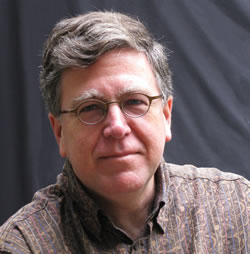|
The composition of every piece of writing is a kind of puzzle. This is true of a novel, a sonnet, an autobiographical essay, a play or screenplay, a love letter, and an email to a colleague about a problem at work. Whom do we address? With what tone? How should we begin? What do we want the reader to think or feel or understand? Is it best to be direct or indirect, sincere or disarming? Should we start with a joke? A quotation?
There are many different kinds of puzzles, but generally speaking, a puzzle is an array of material or information that requires a solution. Let's say a woman has a job, she works hard, but at the end of the month she doesn't have enough money to pay her bills. She decides to write a letter to her employer asking for a raise. The composition of that letter is a puzzle. Should it be a demand or a request? How should she support her argument? It's a large company, very professional, so she decides she should simply state the circumstances, offering a few highlights of her excellent work and its benefits to the company. She deliberates over whether to issue an ultimatum ("More money, or off I go") or to acknowledge her employer's perspective ("These are difficult times, so if the budget won't allow it now, maybe next year?"). Has she chosen well, arranged all the pieces successfully? She'll know as soon as she gets her response.
A short story, novel, or poem is a different kind of puzzle; and it is more than a puzzle.
Anton Chekhov wrote in a letter, "An artist observes, selects, guesses, arranges—these actions… must be prompted by a question." In short, he is encouraging the writer to be a kind of puzzle maker—the crucial difference being that the completed puzzle leads readers to a provocative question. About that, he told his correspondent, "You are right to demand that an artist take a conscious attitude to his work, but you confuse two concepts: resolving a question and posing a question correctly. Only the second is required of the artist."
While composing a piece of fiction is like composing a puzzle, the finished work is not presented by the writer merely as a puzzle for the reader to solve. There may be puzzles within a story, aspects of plot or character or imagery or meaning that the writer arranges, with the expectation that the reader will actively participate in their assembly. Like Ariadne's thread allowing Theseus to journey into—and safely out of—the mythical labyrinth, a story means to lead the reader somewhere. But the destination isn't a monster, or a pot of gold, or a bit of wisdom. Instead, the destination is something—or several things—to contemplate. This is true mystery: the unanswerable question at the heart of a story or novel that is both exposed and contained by the composition of the work.
The best fiction leads the reader not to an explanation, but to a place of wonder. How do we know that? Because the books and stories that mean the most to us are the ones we want to read again, to re-experience and reconsider.
|


